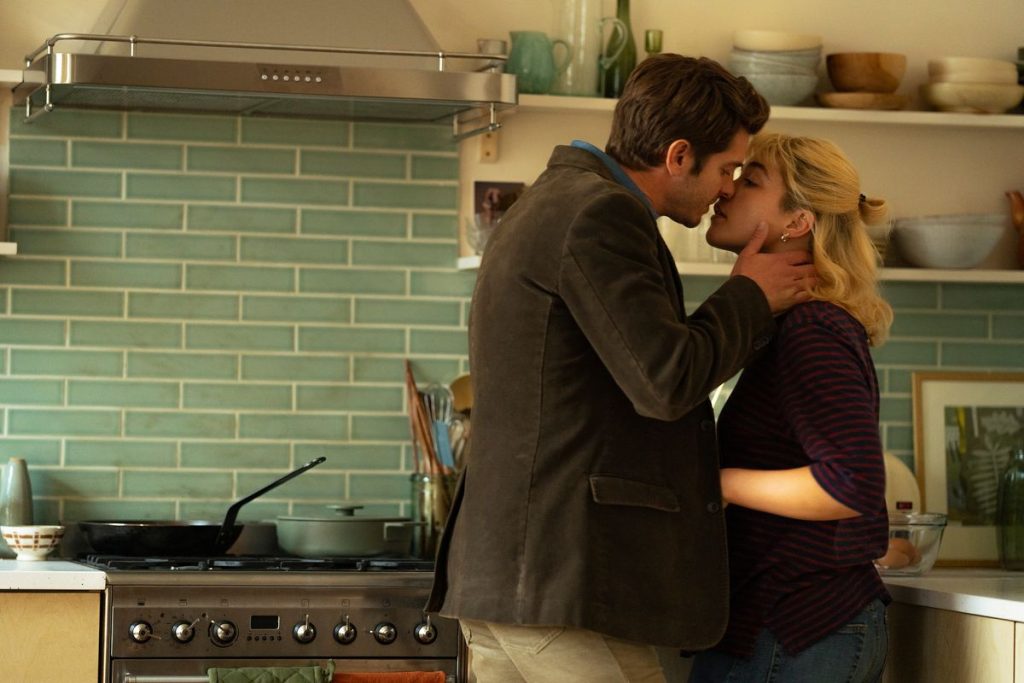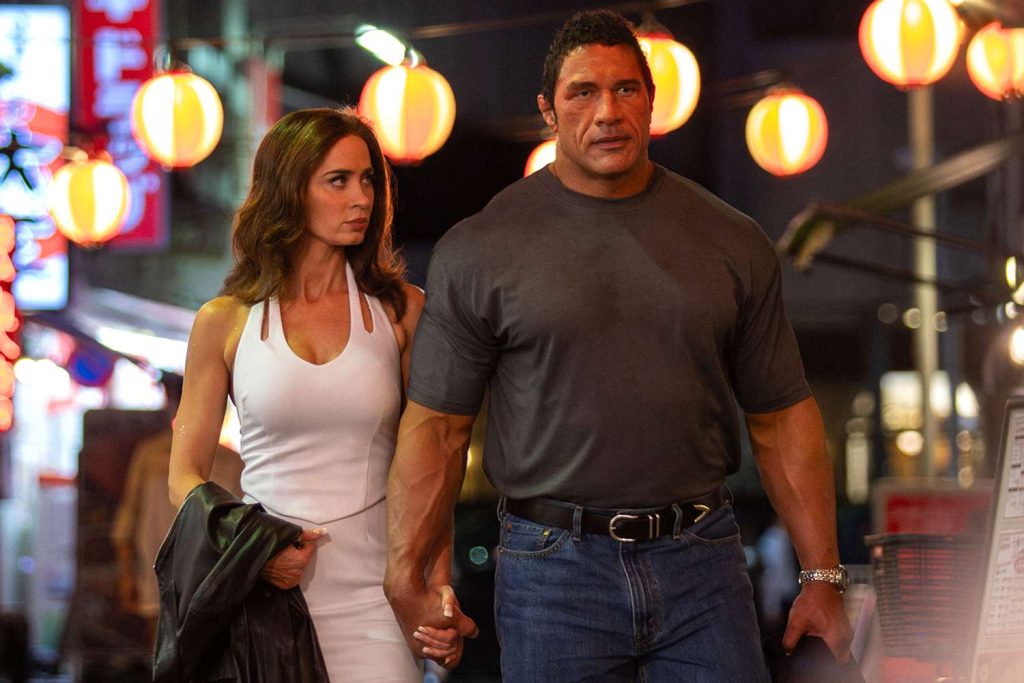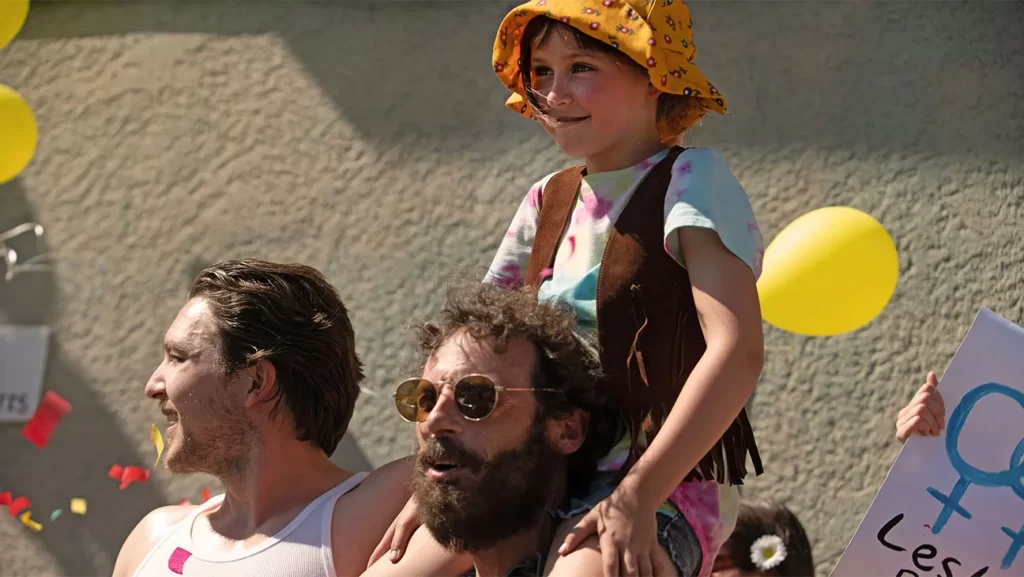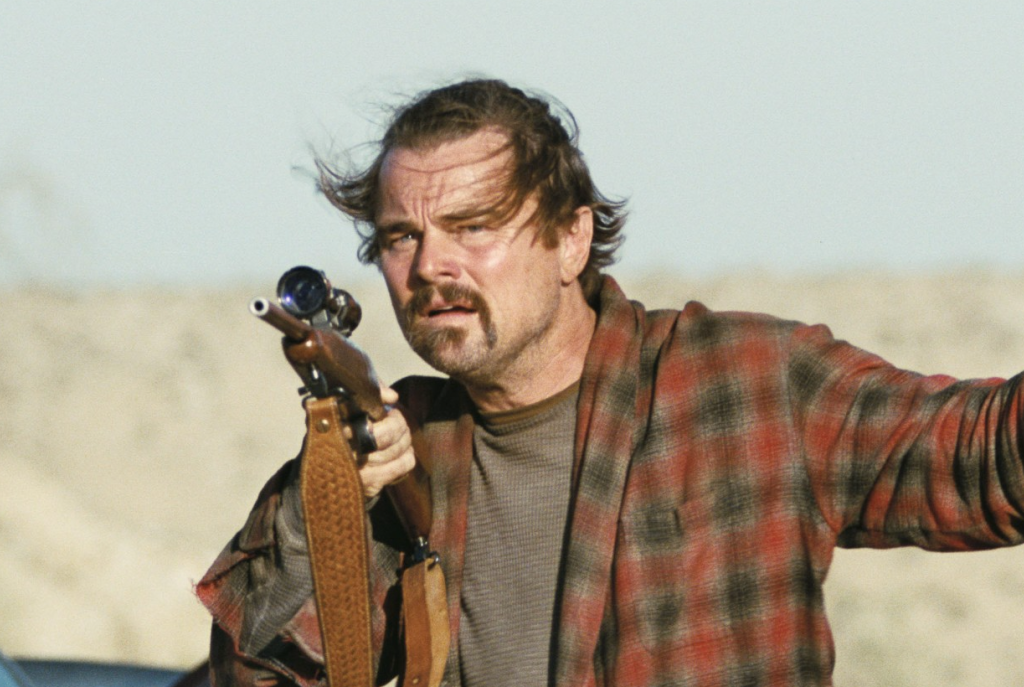Handing out a branded pocket pack of tissues at your movie screening is a great marketing ploy, but it’s also a gamble. If you’re promising the audience that they’ll cry at your emotional drama, what if they don’t? Movie marketing is largely about setting expectations and meeting them, and We Live in Time is exactly the kind of movie that should make viewers verklempt and be happy they have tissues ready. Yet despite a sob-worthy premise, We Live in Time isn’t as emotionally satisfying or gutting as one might hope to see from John Crowley, the director of the shatteringly lovely Brooklyn (and the far-less-loved The Goldfinch). I skipped wearing mascara for this?
If it were coming from any other director and starring anyone other than talents on the level of Florence Pugh and Andrew Garfield, the expectations wouldn’t be so high for We Live in Time. This is a perfectly all right movie; it was made with care and skill, but it’s not at the level that one might hope. (I am “one.” My profile header on the site formerly known as Twitter is a banner of Saoirse Ronan in Brooklyn.)
We Live in Time is an oh-so-modern version of an old-fashioned weepie, which takes a very 2024 approach to the classic tragic romance genre. Award-winning chef Almut (Pugh) and Weetabix marketer Tobias (Garfield) are destined to be together from the moment we meet them — and not just because our first encounter with the couple occurs years into their relationship. We Live in Time takes a nonlinear course through their love story, inserting the audience into a moment when they’ve been together for a decade. The script from Nick Payne moves back and forth between periods in their lives, flitting amongst the early days after they first meet, a moment where crisis strikes them, the birth of their daughter, and the months where time seems most precious when their daughter is still young.

These characters are so precise, both on the page from Payne and the performances from Pugh and Garfield. She’s full of fiery independence, refusing to be defined by any one thing or any one person. Garfield is a master at depicting the moments where the dam is about to burst and his character is close to crying, which happens (unsurprisingly) multiple times throughout the travails that assail Tobias and Almut. He’s simultaneously sensitive and guarded, while Almut is the bolder, brasher one in the relationship.
There’s plenty to fall for in We Live in Time. Crowley knows just when to bring a touch of lightness to grave circumstances, and Pugh and Garfield are as adept at gentle comedy as they are at the script’s more crushing moments. While it didn’t wreck me, it also deserves credit for not becoming too maudlin, which would be a far easier trap for a film like this to fall into. The non-linear structure of Payne’s screenplay keeps the movie from feeling like a million others just like it. From an intellectual perspective, it treats its audience as intelligent, not feeling the need to over-explain everything without leaving them feeling unmoored through its time jumps. On the emotional side of things, some scenes are achingly romantic and full of heat. Pugh and Garfield are great together, and it should have made me sadder that their lives were filled with as much sadness as joy.
Yet We Live in Time breaks your heart precisely because it doesn’t break your heart. I am a softy who has cried at the trailers for two movies just in the last week, but We Live in Time just didn’t resonate with me as much as it meant to. The idea of the fleeting nature of every minute is what drives We Live in Time, and it does ably capture how special both small and large moments can be in our lives. Yet it also is a reminder that while there are few better ways to spend your time than watching a truly great movie, a merely okay one like this isn’t likely to be what you recall on your deathbed.
B-
“We Live in Time” is in theaters this weekend.



